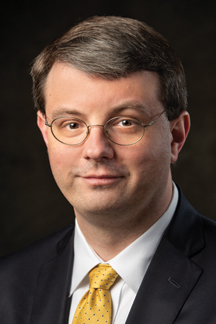It was a fascinating political discussion on Eastern Panhandle Talk on local radio station WRNR Friday.
Mike Hornby, the owner of the station and a member of the West Virginia House of Delegates, brought together a roundtable of Republicans to discuss politics in the state.
Present at the table in the WRNR studio in Martinsburg were Senators Patricia Rucker and Jason Barrett, House of Delegates members Mike Horby and Mike Hite, and on the phone calling from the Charleston area was Speaker of the House Roger Hanshaw.
The panel was moderated by guest host John Gilstrap.
Former Democrat and now Republican Barrett made the point that the focus in West Virginia has shifted to the primaries because the odds are that the Republican is going to defeat the Democrat — if there even is a Democrat running — in November. The contested election is no longer in November.
“When you are in a Republican primary and when you are the challenger, you have an uphill battle,” Barrett said. “In order to distinguish yourself, the candidates make these nasty attacks. And it’s mostly done by these outside groups, these third party groups – independent expenditures – and sometimes we don’t even know who they are.”
“I was attacked in my primary in 2022 by a group that had an address in Raleigh County. They did a bunch of negative ads against me and it did have an impact in Jefferson County. I was not as well known during that campaign in Jefferson County as in Berkeley County. I I lost Jefferson County by a couple of hundred votes. And I know it was because of those negative ads.”
“I won Berkeley County by two to one because I’m a known quantity in Berkeley County and people here could see through that stuff,” Barrett said. “But to the voters who don’t know either candidate when they see that negative stuff, unless they have something to counter that, that is what they are going to believe.”
Rucker said that the reason primary races in West Virginia are becoming so ugly is because “Republicans are pretty much in control.”
“They are the ones who are probably going to win,” she said. “As the stakes get higher and higher in that primary – it becomes desperation.”
“So, it’s a race as to how Republican you can be because you know that the primary is the election,” Hornby said.
Host John Gilstrap asked Speaker Hanshaw why so much outside money was being spent on elections in West Virginia.
“With the amount of money spent in West Virginia from outside entities, we are 1/300th of the population of the country,” Gilstrap said. “Where is the value for these outside groups to capture the West Virginia House or Senate or Governor’s mansion?”
“Most of the entities from outside West Virginia who engage in that kind of substantial spending are people who are looking to be or looking not to be trendsetters,” Speaker Hanshaw said. “As states begin moving in one direction or another in public policy, other states follow suit. When we attend national meetings of our colleagues from other states, the topics are – how is your state regulating pharmaceutical distribution, how is your state regulating automobile emissions, how is your state regulating product safety standards on say toothbrushes? And if you are in the toothbrush business, you want some sense of uniformity across the country with respect to how toothbrushes are regulated.”
“So, it becomes a decisional calculus, a business decision, with the toothbrush industry to decide that it does make sense for the state of West Virginia to be one direction or another with respect to public policy because we want some say over how toothbrushes get regulated in West Virginia because that may ultimately influence how toothbrushes get regulated in Texas.”
Speaker Hanshaw is a partner at Bowles Rice, one of the top corporate defense law firms in West Virginia.
When Speaker Hanshaw spoke of “national meetings of our colleagues from other states,” he was probably referring to national meetings of state legislators and corporate power brokers — something similar to the corporate controlled American Legislative Exchange Council (ALEC) States and National Policy Summit held in December 2024 at the Grand Hyatt Hotel in Washington, D.C.
The meeting brings together state legislators from around the country to meet with leaders of major corporations to decide policies benefiting those corporations.
In July 2024, ALEC designated Delegate Mike Hornby as an “ALEC Legislative Champion.”
According to a report from the Center for Media and Democracy, “through ALEC, behind closed doors, corporations hand state legislators the changes to the law they desire that directly benefit their bottom line.”
“Along with legislators, corporations have membership in ALEC. Corporations sit on all nine ALEC task forces and vote with legislators to approve model bills. They have their own corporate governing board which meets jointly with the legislative board. (ALEC says that corporations do not vote on the board.)”
“Corporations fund almost all of ALEC’s operations. Participating legislators, overwhelmingly conservative Republicans, then bring those proposals home and introduce them in statehouses across the land as their own brilliant ideas and important public policy innovations – without disclosing that corporations crafted and voted on the bills.”

